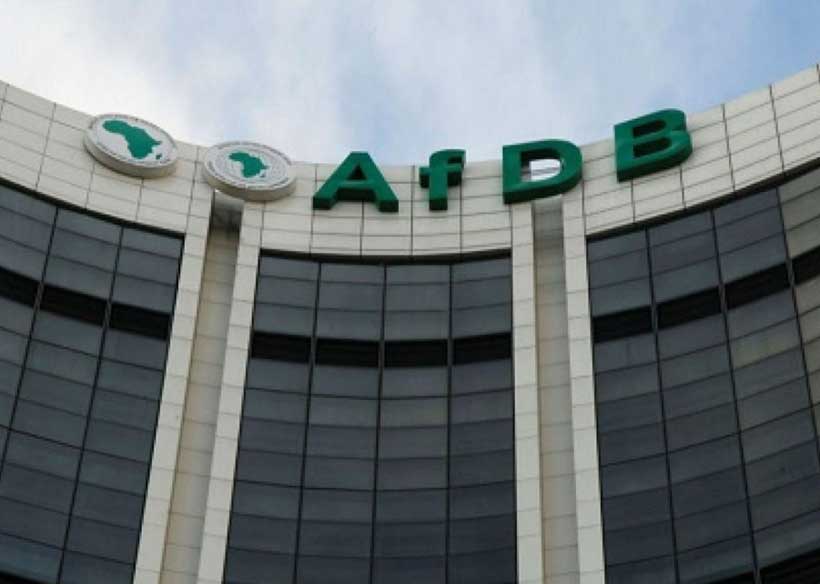AfDB Approves $16.4M for Climate-Resilient Water Systems in Ethiopia’s Borana Region
The Ministry of Water and Energy of Ethiopia will oversee the project’s execution, ensuring alignment with national strategies on water resource management and climate adaptation.

- Country:
- Ivory Coast
The African Development Bank (AfDB) has approved $16.38 million in additional financing for the Borana Resilient Water Development for Improved Livelihoods Programme II, a key initiative aimed at strengthening climate resilience and water security in Ethiopia's drought-prone Oromia region.
This fresh funding represents a major step in supporting Ethiopia's long-term strategy to build climate-resilient infrastructure and protect communities affected by recurring droughts, particularly pastoralist populations in the Borana zone.
Expanding Water Access and Renewable Solutions
The newly approved financing package includes a $9.38 million grant from the Climate Action Window of the African Development Fund — the concessional arm of the AfDB Group — and $7 million from the Rome Process/Mattei Plan Financing Facility, an initiative designed to support sustainable development partnerships between Africa and Europe.
The funds will be used to expand Borana's water distribution network by nearly 95 kilometres and deploy solar-powered water systems, improving access to clean water for 23,000 people and 50,000 livestock.
"These investments will directly address one of the region's most pressing challenges — the chronic shortage of water for people and livestock due to repeated droughts," the Bank said.
"This additional financing marks a decisive step towards climate-proofing livelihoods in one of the most fragile ecosystems in the Horn of Africa," said Mecuria Assefaw, the AfDB's Water Security and Sanitation Manager for East and Southern Africa.
A Lifeline for Pastoral Communities
The Borana region is home to thousands of pastoral farmers who rely heavily on livestock for their survival. In recent years, severe droughts have devastated grazing lands and killed millions of animals, forcing families into extreme poverty.
By improving access to safe and sustainable water sources, the project will reduce dependence on emergency humanitarian aid, improve health and educational outcomes, and create new livelihood opportunities.
Women and youth — who are often the most affected by the burden of water collection and the loss of livelihoods — are expected to benefit directly from improved access to water and energy resources.
Integrating Sustainability and Climate Action
Beyond expanding water infrastructure, the programme will strengthen integrated watershed management, promote community-based resource governance, and install household biogas units to reduce pressure on forests and curb greenhouse gas emissions.
"By harnessing renewable energy and empowering communities to manage their water resources, we are ensuring that resilience is not a concept on paper but a reality for families, farmers, and future generations," Assefaw emphasized.
The initiative aligns with Ethiopia's Ten-Year Development Plan (2021–2030), which prioritizes sustainable and inclusive economic growth, as well as the AfDB's Ethiopia Country Strategy Paper (2023–2027) that focuses on climate-smart infrastructure development.
Building Long-Term Climate Resilience
The Ministry of Water and Energy of Ethiopia will oversee the project's execution, ensuring alignment with national strategies on water resource management and climate adaptation.
The AfDB said that through innovative, community-driven models, the project will:
-
Enhance water governance and local capacity for resource management.
-
Support job creation in maintenance, solar energy installation, and water system management.
-
Promote sustainable livestock practices that can withstand recurring droughts.
-
Strengthen education and health services through improved water supply.
The initiative also supports regional cooperation on climate resilience under the Horn of Africa Resilience Framework, designed to address shared environmental and economic challenges across borders.
Global Partnerships for Local Impact
The Mattei Plan — named after Italian energy pioneer Enrico Mattei — represents a growing framework of collaboration between African countries and international partners to drive green and inclusive development. Through this financing mechanism, the Borana project serves as a model for renewable energy–driven rural resilience.
The AfDB's support through its Climate Action Window also underscores the Bank's role in mobilizing climate finance for adaptation in Africa, where less than 10 percent of global climate funds currently flow despite the continent's high vulnerability.
A Path Toward Sustainable Prosperity
The expansion of the Borana water systems is expected to have multiplier effects across health, education, and economic sectors — from reducing waterborne diseases to improving school attendance, particularly among girls, and stimulating local entrepreneurship.
By linking renewable energy and water security, the project demonstrates how integrated climate investments can deliver lasting human development benefits.
As Ethiopia faces increasing climate stress, the AfDB's latest investment reinforces the country's vision of a climate-resilient green economy, where communities are empowered to withstand droughts and build sustainable livelihoods.
ALSO READ
-
AfDB Approves US $8.6M Grant to Strengthen Water, Sanitation & Climate Resilience in Rural Burundi
-
Controversial Release: Ethiopian Assailant's Accidental Jail Exit Sparks U.K. Uproar
-
Tragic Collision: Train Disaster in Eastern Ethiopia
-
FARM P3 Pilot Launched to Boost Zimbabwe’s Sorghum Value Chain and Climate Resilience
-
SA Unveils ‘Early Warnings for All’ Roadmap to Strengthen Climate Resilience









